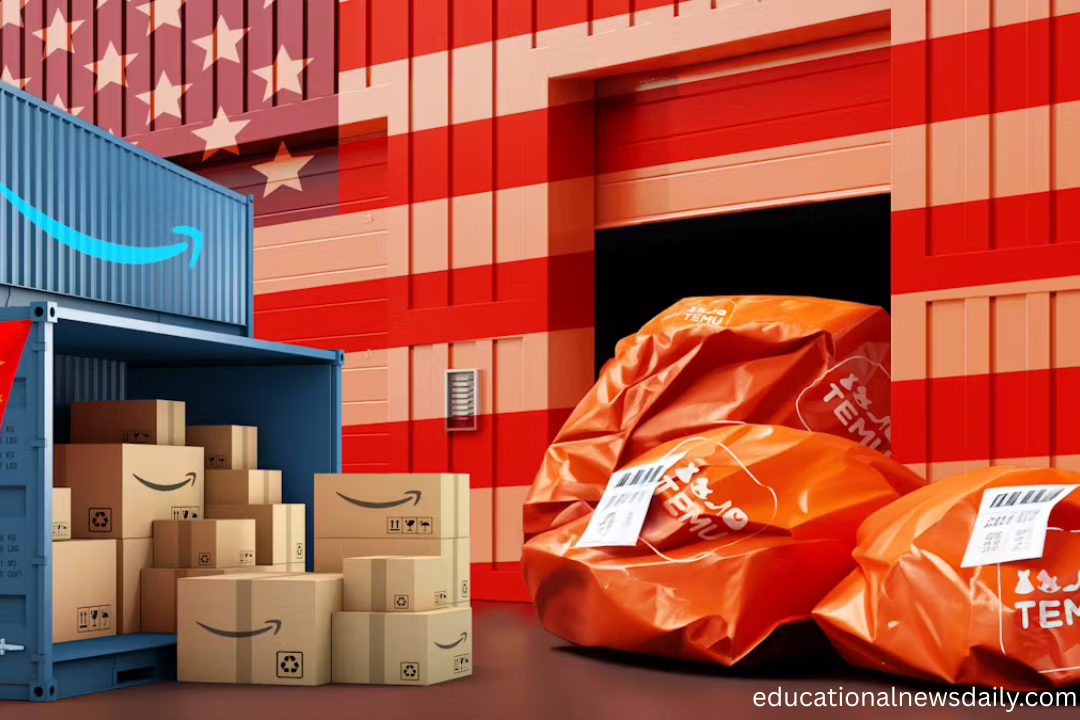Temu, the Chinese e-commerce platform known for offering ultra-affordable products, has ceased direct shipments from China to the United States. This significant change follows the U.S. government’s termination of the “de minimis” trade exemption, which previously allowed goods valued under $800 to enter the country without incurring tariffs.
Understanding the ‘De Minimis’ Exemption
The “de minimis” exemption, established in 1938, permitted low-value imports to bypass tariffs, facilitating a surge in direct-to-consumer shipments from overseas retailers. Temu and similar platforms leveraged this loophole to offer competitively priced goods to U.S. consumers.
However, concerns over illicit shipments and unfair competition prompted the U.S. government to revoke this exemption for Chinese imports, effective May 2, 2025.
Temu’s Strategic Shift
In response to the policy change, Temu has restructured its U.S. operations. The platform now sources products from U.S.-based warehouses, collaborating with local sellers to fulfill orders. This transition aims to maintain service continuity while adhering to new trade regulations.
Temu has updated its website and app to reflect this change, displaying only items available in U.S. warehouses to American shoppers.
Implications for Consumers and the Market

The cessation of direct shipments from China may lead to increased prices for Temu’s U.S. customers as the company adjusts to domestic sourcing and associated costs. Industry experts suggest that the imposition of import fees and taxes could raise costs significantly—potentially over 100% of a product’s value.
This development also impacts the broader e-commerce landscape, as platforms like Shein and AliExpress face similar challenges under the new trade regulations. The shift may prompt a reevaluation of global supply chains and pricing strategies across the industry.
Frequently Asked Questions (FAQs)
Why did Temu stop sending goods from China to the U.S.?
Temu halted shipments from China because the U.S. had removed the “de minimis” exemption, which allowed tax-free imports under $800.
What is the de minimis exemption?
The de minimis rule lets imports under $800 enter the U.S. without tariffs. Its removal affects platforms like Temu, which relied on it for low-cost shipping.
Will Temu still operate in the U.S.?
Yes, Temu continues operating in the U.S. by sourcing products from domestic warehouses and partnering with local suppliers.
Are Temu’s prices going to increase?
Prices may rise slightly since Temu now covers higher logistics and import costs by sourcing goods locally or through taxed imports.
What happens to orders placed before the shipping change?
Orders placed before the change will be fulfilled based on existing logistics, but due to the policy shift, delays may occur.
Can I still buy Chinese products in Temu in the U.S.?
Only items stocked in U.S. warehouses are now shown to American customers. Direct-from-China listings have been removed.
How does this affect other e-commerce platforms?
Other platforms, such as Shein and AliExpress, may also face challenges under the new policy, possibly shifting toward local fulfillment models.
Is Temu planning any long-term solutions?
Temu is investing in U.S.-based logistics and warehousing to maintain competitiveness and minimize the disruption caused by trade policy changes.
Conclusion
Temu’s decision to halt direct shipments from China to the U.S. marks a significant shift in its business model, influenced by changing trade policies. As the company adapts to these new regulations, U.S. consumers may experience changes in product availability and pricing. The broader e-commerce sector will likely monitor these developments closely, assessing their impact on global operations and market dynamics.


